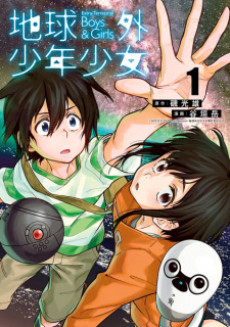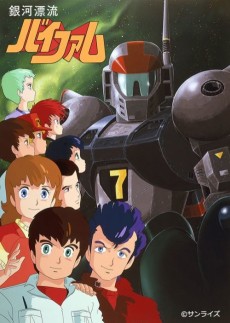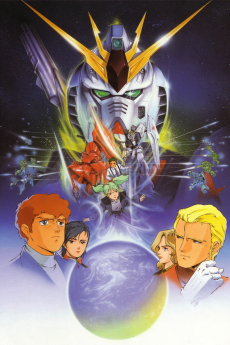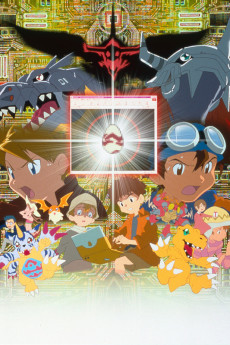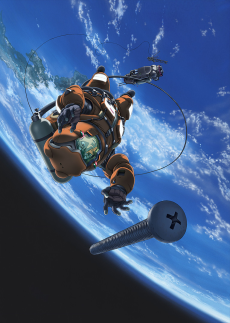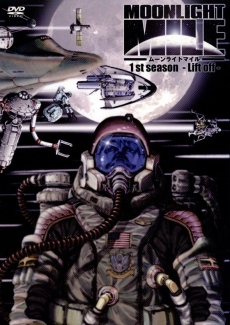CHIKYUUGAI SHOUNEN SHOUJO
STATUS
COMPLETE
EPISODES
6
RELEASE
January 28, 2022
LENGTH
32 min
DESCRIPTION
The anime is set in 2045, where the Internet and AI are commonplace even in space, and centers on a group of children stranded in space after a large-scale accident occurs in a space station. By using narrowband, social networking, and a drone that they can manipulate through smartphones and low-intelligence AI, they overcome many crises.
(Source: Anime News Network)
Note: Also released in Japan as a 2-part film series with the same content, the first part showing in theaters simultaneously with the worldwide Netflix release.
CAST

Touya Sagami
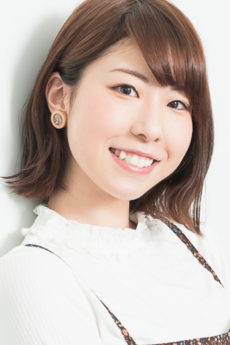
Natsumi Fujiwara
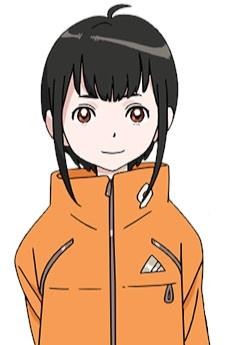
Konoha Nanase
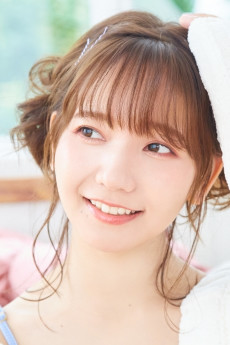
Azumi Waki
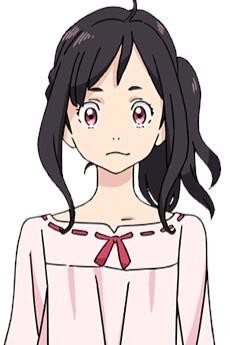
Miina Misasa
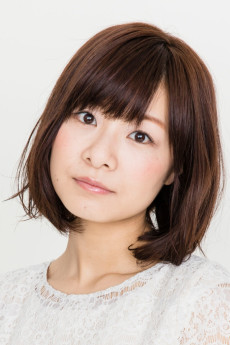
Chinatsu Akasaki
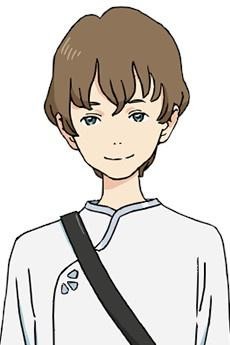
Taiyou Tsukuba
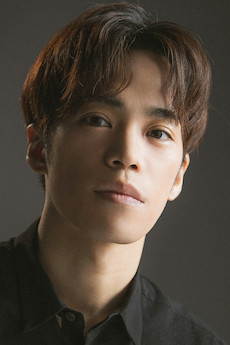
Kenshou Ono
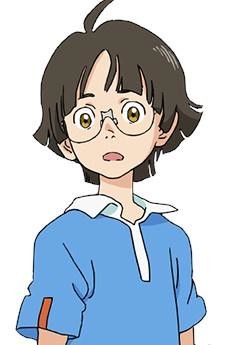
Hiroshi Tanegashima
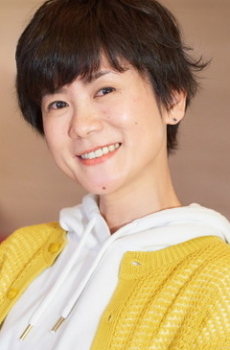
Yumiko Kobayashi

Dakky
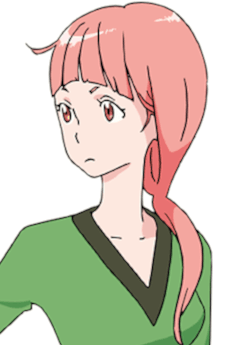
Houston Nasa

Mariya Ise

Sagami-shichou
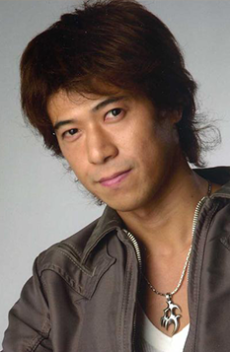
Eiji Hanawa

Isako Nobeyama
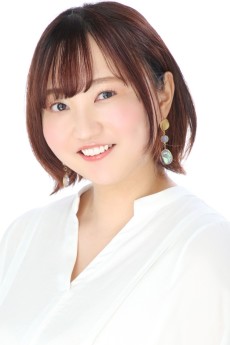
Emiko Takeuchi
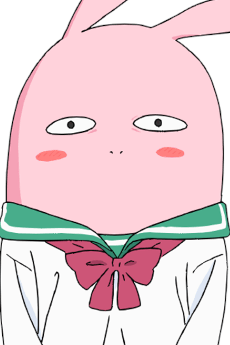
Anshin-kun
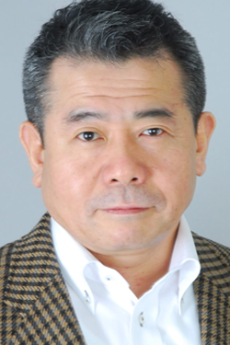
Jin Urayama

Selfie
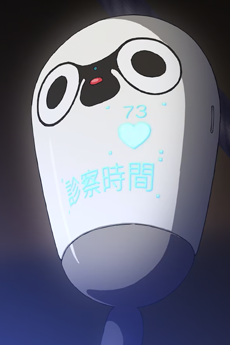
Medi
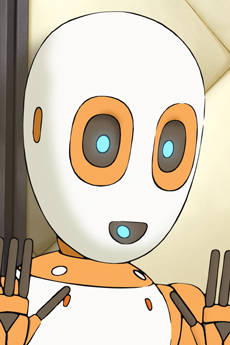
Twelve
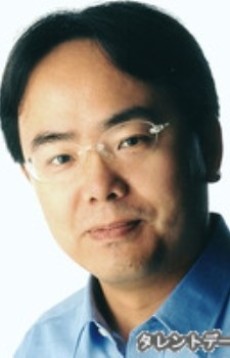
Moichi Saitou

Seven
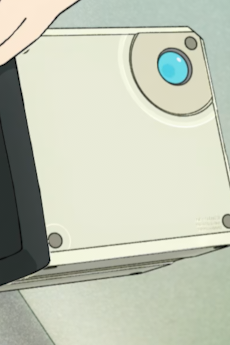
Bright
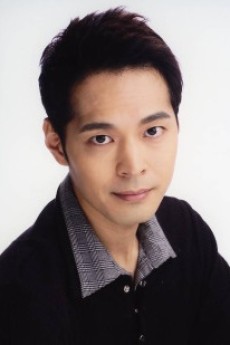
Tokuyoshi Kawashima

Kennedy Johnson
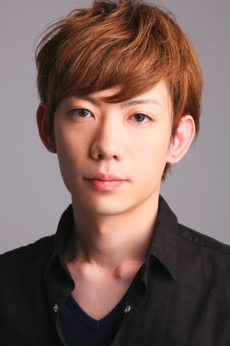
Daiki Hamano

Announcer A
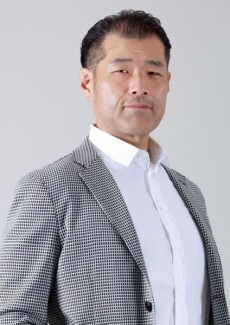
Volcano Oota

Announcer C
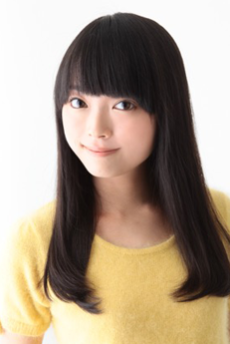
Saori Okamoto

Announcer D
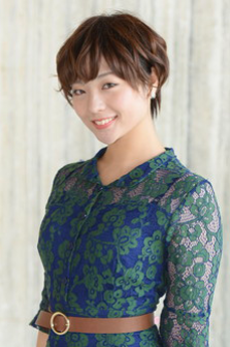
Ahiru Oohira

Announcer B
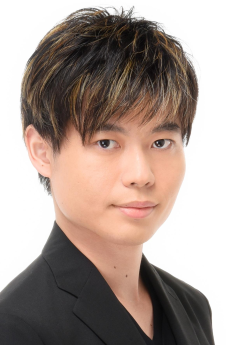
Kazumasa Fukagawa
EPISODES
Dubbed
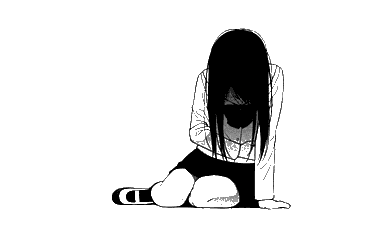
Not available on crunchyroll
RELATED TO CHIKYUUGAI SHOUNEN SHOUJO
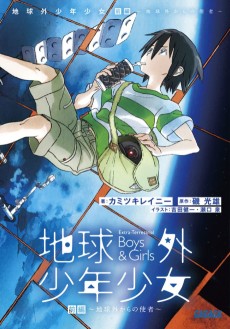 NOVEL AdventureChikyuugai Shounen Shoujo
NOVEL AdventureChikyuugai Shounen ShoujoREVIEWS

AnimeDweeb
80/100Reaching For the Stars.Continue on AniList#"Mindblown." 
It's a sentiment that you'll likely be left with upon watching *The Orbital Children* (TOC). This brisk, 6-episode Netflix ONA is very much "Mindblown: The Anime." And no, I'm not just referring to its tight mystery-thriller sci-fi script. While it relentlessly piles on ingenious worldbuilding and ethical dilemmas, TOC ultimately asks its audience to confront the value in confusion. What do we really know about the world around us? How do we face problems we can't solve individually? Is it worth seeking out the unknown? Take a chance on me and find out, as we take a **spoiler-free** leap into TOC (**Tl;Dr** below.) 3… 2… 1… we have liftoff!
#"*Houston, we have a problem.*" 
In the year 2045, the manned space station and hotel, "Anshin," prepares a landing party for Earthling tourists sponsored by Deegle (any likeness shared with Google is purely coincidental.) Brilliant hacker Touya Sagami, one of the two remaining children born on the moon, is deeply resentful of the "idiot Earthers" he's hosting. That being said, just one party pooper isn't enough to dampen the excitement of the station's visitors: Taiyo, Mina and Hiroshi. But with a surprise comet en route to damage both the shuttle and the world below, perhaps it's no time to be *anshin-shiro* ("relieved" in Japanese.) Touya and the other personnel on-board have to do a lot more than just survive the cosmic onslaught. Uncovering the mystery surrounding the incoming comet will reveal a complex array of problems that puts the entire world at stake.
#TOC showcases great worldbuilding in outer space. Series creator [Mitsuo Iso](https://anilist.co/staff/100151/Mitsuo-Iso)'s vision of what the future will look like is equal parts fascinating and sobering. Throughout the course of this tightly-written survival story, viewers will be treated to a well thought-out futuristic setting. Technological devices within the show take full advantage of the whimsy sci-fi allows, while keeping things intuitive and easy to understand. Presumably to the delight of [*VIVY*](https://anilist.co/review/11892) fans, artificial intelligence is explored in great detail, raising interesting considerations regarding how society should integrate with such powerful technology. The introduction of space travel offers more than mere set dressing, and opens up a recurring ethical dilemma about Earth's overpopulation & natural resource crises. Having recently sat through the sheer sci-fi stupidity of [*BELLE*](https://anilist.co/review/15071), I was thoroughly impressed by how much better TOC fared in terms of establishing conflict and discussing what the future might hold. Also noteworthy is how TOC handles its characters. Despite shocking reveals and shifts in alliances, none of the cast members can be pinned down as a traditional "villain," and everyone is doing their utmost to deal with the cataclysmic chaos at hand. Even though the characters themselves scarcely feel all that developed personality-wise, they certainly get the job done through compelling personal motivations. Aside from some ill-timed comedy and poor patches of pacing, TOC makes for an engrossing binge, with a lean runtime of just over 3 hours. [Production +h](https://anilist.co/studio/6737/Production-h)'s debut studio effort does a capable job, thanks to capable 2D animation and compositing. The environment design of the "Anshin" looks unique and lived-in, thanks to the use of familiar Japanese iconography and pastel colors alongside a hi-tech, minimalist interior. However, with visual eye-candy comes visible confusion; TOC is not an easy show to grasp at times. The series may prove demanding due to its exposition of sci-fi and mystery elements. Furthermore, the frequent switching between narrative perspectives makes the task of keeping up with the show's heavy exposition all the more cumbersome. TOC might feel overwhelming with its themes and subject matter, but not without good reason. The series can be boiled down to an uplifting core message, which I'll now explain by bringing up the complex perspective of our MC, Touya.
#Space may as well be the final frontier, because it's all Touya has left. 
Remember what I said about MC hating humans? Well, we're about to get into why. In the past, human attempts at starting a moon colony would be thwarted due to the deaths of infants born there. This "moon sickness" throws off hormone development in the young, and needed treatment in the form of brain implants designed by the smartest A.I. of its time, Seven. These A.I. limiters would control hormone balance until adolescence, thereby allowing moon children to grow up. Unfortunately, the brain limiters could not be deactivated after childhood, meaning that the moon sickness these kids avoided as infants would kill them as teenagers. The only being capable of fixing this design flaw, Seven, was discarded for surpassing human control. No A.I. since reached Seven's massive computational capacity, due to rigid regulations on A.I. power. Plans to build civilization on the moon were eventually scrapped, dooming Touya to a deadly fate. From Touya's POV, the Earthers made him bear this curse, with no means of a cure, now that the A.I.s got nerfed. But our boy was born on the friggin' moon; he's not giving up that easily. In response to the world threatening his existence, Touya's goal is to hack away all of his A.I. drone's limiters and usher in the second coming of Seven. To Touya, this is the only way of saving him and Konoha, the only other moon child on-board the "Anshin."

Now, let's take a step back from this lunar perspective and see the other side of the ethical coin. In stark contrast to the rebel hacker from outer space, the law-abiding UN agent Taiyo could not disagree more with Touya's worldview. Seven's deactivation followed after the out-of-control A.I. instigated several global incidents that cost hundreds of lives. A rogue A.I. mega-computer is the last thing governments would want to deal with, given the other problems on their plate. Overpopulation is threatening the end of the human race. Having lost control of the situation once before, the UN is intent on ensuring that all variables are kept in check, as the world assesses her dire options. Taiyo wouldn't dare risk causing another Seven Saga to occur, especially with a situation so critical. Then again, perhaps Touya's gambit of fully trusting A.I. may be the best solution, which both saves the world and repairs the malfunctioning implants. Touya's and Taiyo's ideologies are at polar opposites, and their respective resolves are iron-clad, even if both are trying to do the right thing. Is technology the threat or the solution? To further complicate things, maybe the best move is the utilitarian one, where the imminent comet is allowed to wipe out a third of the world's population, thereby preserving man's existence. What's the right answer?
#Confused? Same. 
In the beginning of this review, I said that this show is going for the "mindblown" effect. Hopefully I've demonstrated how the show lives up to that description, and we haven't even touched on TOC's esoteric stances on ethics, religion or predeterminism. The unorthodox climax of Episode 6 consists of quite possibly the most mind-boggling conceptual jargon I've ever heard, a plethora of which flew over my head like shooting stars. But as I said before, TOC also shows us the meaning in confusion. Confusion is possibly the most effective motivator we have for thinking. After all, if we never challenge ourselves with difficult questions, we'll never be motivated to develop our way of thinking or arrive at valuable answers. In TOC, a concept mentioned prominently is that of "the frame," or "the cradle." These terms can be read as "perspective." From young, each of us grew up seeing the world from our personal, unique frames. But just like peering out of a space shuttle window to look down on Earth, we eventually come to realize how small we are in the grand scheme of things, and how many other frames exist - we get "mindblown." Much like the orbiting children, we need to realize that our perspective isn't always enough to solve the most challenging of problems. The layered predicament facing the crew of the "Anshin" can only be solved through the integration of frames and open-minded collaboration. Touya needed to show empathy for the Earthers that he once considered ideological enemies. Taiyo needed to set aside his unflinching faith in the law, so that his friends could survive. Yes, confusion is inevitable, and we tend to fear what we do not understand. But the uncertainty could hold all the answers; sometimes you won't know unless you take a leap of faith and escape your frame. It's a great message for TOC to conclude on, as the show relishes the unknown opportunities of humanity's future amidst eminent problems. Watching Touya and the crew escape the frame of conventional thinking is a thrilling, cathartic experience - one that I'm hoping you try out for yourself.
#**Tl;Dr**: *The Orbital Children* is a high-stakes adventure among the stars. A refreshing take on the disaster movie, TOC regularly introduces well-crafted conflicts and concepts that'll be sure to impress avid sci-fi fans. A compelling series of ethical dilemmas accompany our cast's survival story, which ramps up into a jaw-dropping climax of ear-grinningly epic proportions. TOC is occasionally hampered by unnatural patches of comedy and drops in pacing, but brilliant worldbuilding makes this series an immersive binge. **8/10**~
#STRAY RAMBLINGS (**SPOILERS**) - The "Anshin" mascot was probably the funniest gag in the whole show:

Grandpa even got on the Fred drip too sheesh
- Episode 3 had a really cool moment involving Taiyou's skepticism towards Nasa's faith in the "Seven Poems." For context, the "Seven Poems" are a series of predictions made by Seven. Nasa's belief in the A.I.'s prophecies is not shared by everyone, and Taiyou's "frame" on this subject was handled in a really cool way. He tells Nasa to "leave out the occult," which both states his cynical worldview and highlights his possible oversight. Him calling these texts "occult" may be an implicit reference to Clarke's Third Law: "Any sufficiently advanced technology is indistinguishable from magic." For all we know, Seven's cryptic prophecies could be accurate, and everyone else may simply lack the intellectual capacity to understand the robot's theories. TOC frequently critiques each of its central characters' ideologies in this manner, and these robust observations mirror what society's view on advanced technologies could look like in the near future.
- While we're on the subject of magic, the big confrontation in TOC's finale showcases what's likely the smartest excuse for writing in a dumb plot contrivance. That scene is a cop-out of the highest degree, and my nitpicking ass is impressed for being unable to argue with it. Incredulous ideas like "Science 2.0" and "the 11th Dimension" are probably a bunch of horseshit assembled in the writer's room, but I don't actually have the evidence to disprove these abstract concepts. The whole point of that scene was to elevate human thinking beyond what is currently possible, so naturally these aspects are gonna sound like utter nonsense to the audience. Well played, Mitsuo Iso, well played.
- Everyone, I figured out what FiTsZ means:
<span class='markdown_spoiler'><span>FiTsZ this weiner in your mouth GADEEM (I'm sorry)</span></span> <center> - Episode 5 sees the crew decide to let Second Seven observe human presence on the Internet in an unbiased manner. Once again, this speaks to the overall message of appreciating other worldviews, and is a really sweet way of depicting our interactions on social media... wait, hang on- </center> <img width='100%' src='https://cdn.discordapp.com/attachments/766670782494408744/936856539392790538/unknown.png'> <center> Well, shit. - **BEST GIRL**: Hmm, not many to choose from. Gonna go with the Twitch e-girl for her comic relief and the best pun I've heard in a long time: "Mina-Mina, *mina* !" </center> <video muted loop autoplay controls><source src='https://i.imgur.com/ACSzY0h.mp4' type='video/webm'>Your browser does not support the video tag.</video> <center> *** </center> <img width='100%' src='https://cdn.discordapp.com/attachments/766670782494408744/936763996189638696/unknown.png'> ~~~ <p align="justify"> Phew, that was a fun trip. Thanks for joining me! Unfortunately space travel isn't quite something feasible atm, but lucky for us, I do know of something that'll [go to the moon](https://cdn.discordapp.com/attachments/766670782494408744/936758687635222600/unknown.png)... don't miss out on the DweebCoin, doubters. Anyways, if you happen to like my verbose rants, feel free to check out my other [reviews](https://anilist.co/user/AnimeDweeb/reviews) for seasons past and present. I also frequently post writeups under my list updates, so definitely take a peek if you'd like to see me mald over anime as they hit the airwaves, peace~ </p>
seanny
70/100An updated "2001: A Space Odyssey" that answers sci-fi's true calling of imagining the futureContinue on AniList
I'm predisposed to like this not only because the people behind it but because it's a for-real, forward-looking sci-fi. As someone who casually consumes a lot of pop-astronomy content and likes to imagine what a space sci-fi could be if only it would let go of its retroism — the space race, Asimov, Clarke, Star Wars, Gundam, etc. — and synthesize current ideas of space travel, colonization, and an economy into a new vision of the near-future... I'm very much on this anime's wavelength. Isn't imagining the future what sci-fi ought to do? As our concepts of the future change, so should the genre.
Chikyuugai Shounen Shoujo (The Orbital Children) attempts, for better or worse, to be an updated 2001: A Space Odyssey. That sounds grandiose... because it is. It inherits much of the ambition of Kubrick's film, but also its unwieldiness. The first half concerns children trapped aboard a massive space hotel in a Gravity-esque disaster plot. Split into groups by happenstance, they race against the depletion of oxygen and heat, solving practical problems and engaging in some head-spinning action setpieces aboard the rotating space station.

This is where the anime is at its most approachable and fun with mechanical worldbuilding that shines — its inflatable space habitats and smooth 3D-printed gadgetry are counterpoints to the cold, battleship-like bulkheads that pervade other sci-fi. The series parades space habitation ideas as the kids MacGuyver their way from one escape room to the next. One of the kids, born on the moon and never having visited the homeworld, feels that Earthlings will never understand him and that space is his true motherland. He gets into Dennou Coil -like augmented-reality wizard battles with another kid who places him under arrest on behalf of the U.N. for his AI-hacking. Funneling these esoteric sci-fi topics through the adorable rivalries of children is a device that anime creator Mitsuo Iso once again employs to great effect.

Its second half entertains tech-singularity ideas such as a superintelligent AI and brain-computer interfaces. It's here that the story forms a commentary on man's relationship with technology. The U.N., representing the status quo, places limits on AI capability out of fear which the titular children have to incrementally circumvent. The functional villain of the story sees the superintelligent AI as an omnipotent god that must be worshiped; its words taken as scripture. The children, meanwhile, attempt a good-faith first-contact with the new life form sensing a fundamental misunderstanding.
This chapter of the story can be wordy and unwieldy. As a sci-fi it's plenty interesting — the tech. singularity is by definition the most difficult futuristic idea to represent — but as a work of entertainment, the script could've used more revisions to make something more emotionally resonant with fewer excesses of geeky exposition. But what it ultimately says through its scenario is at least something that rings true to me. The future is coming and we have to engage with it, lest we close our minds out of fear and pessimism, preventing us from conceiving a future we want to live in, pushing its development underground where the most dangerous forms of it will emerge.
The lack of popular sci-fi in today's media that properly envisions the future, rather than wades through apocalyptic dystopias or escapes into retroism, reflects our fear of technology and, by extension, ourselves. The economy will drive us to further disparities and there's no fixing it. The environment will be destroyed by global warming and there's no fixing it. The internet will unravel society and there's no fixing it. The tech titans will control every aspect of our lives and they cannot be dissuaded, and their AIs will one day come alive and kill us all, while the billionaires fly away in their space yatchs. This apocalyptic zeitgeist is incapable of producing something like Star Trek: The Next Generation which imagines a future, enlightened mankind exploring the galaxy. These days, we are served nothing but a feast of retro schlock and Black Mirrors because we refuse to imagine that we are capable of anything greater.
Chikyuugai Shounen Shoujo makes the optimistic case for technology, our problem-solving prowess and our capacity to bridge divides in an era that sorely needs one. It dares to imagine a future where mankind, overcoming its fears of uncertainty and embracing technology, takes the next step into the great unknown.

Juliko25
48/100Sorry, Mitsuo Iso. You've made a lot of great things, but this is not one of them.Continue on AniListIf you're one of those people who really likes to study the nitty-gritty of animation, like key animators or in-between animators, you've probably come across the name Mitsuo Iso. Mitsuo Iso is an animator who started out working for Studio Ghibli as a key animator (The process of which is explained in Eleven Arts' twitter thread here). Iso worked on various animation cuts for Only Yesterday, Ocean Waves, Porco Rosso, Perfect Blue, and even some fights in the End of Evangelion movie. He even did animation for the very first Digimon movie! In 2007, he created his own original anime called Dennou Coil which, while not necessarily a mainstream hit, is considered an underrated masterpiece. I haven't seen Dennou Coil, but I plan to one of these days (HIDIVE, why'd you have to take it off?!). But after Dennou Coil, Mitsuo Iso didn't try to make other projects since then, as apparently even back in 2007, corporations were apprehensive about creating completely original anime, especially anything not based on an existing source like a manga or light novel. But just this year, Iso made a comeback with a very ambitious set of movies called Orbital Children, which just dropped on Netflix. Fans of his work were excited, and since I found it was only going to be six episodes, I figured this would be a good time killer. I'm not normally into heavy sci-fi stuff, especially if they're filled with a lot of technobabble that flies right over my head (Keep in mind, I'm a 28-year-old woman), but I'm a sucker for good animation and well-developed characters, and Iso apparently did both with Dennou Coil, so maybe Orbital Children would turn out great!
...Yeah, I have words for this. In case you couldn't tell, I didn't like Orbital Children. And I really wanted to like it! It even had a great start! In the year 2045, space travel, AI, and technological advancements are commonplace, and the most recent scientific marvel are children born on the moon, though their lifespan is shortened due to some snags. One day, a group of kids win a contest and get to go to a space settlement to meet the children born on the moon. Unfortunately, a rogue comet hits the settlement, trapping them in space. Although the kids don't quite get along at first due to Touya's insufferable nihilism about humanity, they're going to have to work together if they even have a sliver of a chance of surviving. But this is really an oversimplification of things...mainly because one of Orbital Children's biggest flaws is that it tries to tell a really, really huge story in the span of just six episodes, and it really doesn't work. For one, technobabble and exposition is just dumped on you in literally every single episode, almost non-stop, giving you very little time to even process one concept it introduces before moving on to the next one within two seconds. And this series has a LOT of ideas: Intergalactic terrorist groups, AI comets, moon children, some mystical space prophecy, AI drones, the list goes on! There's just so much this show covers in the span of six episodes, and because they're just thrown at us at a breakneck pace, they're all unable to be really fleshed out, and I couldn't have cared less about them because the show would rather overload my brain with all the concepts and ideas it throws into a blender. Episode 4 in particular is guilty of this, as it just throws concepts at you over, and over, and over, with seemingly no end in sight, making it a real slog to go through!
But surely the characters can carry a story like this, right? Well...sort of, at first. Honestly, none of the characters other than Touya get fleshed out beyond one basic character trait they have. Mina in particular is just a social media obsessed teen who's way more focused on getting clout than, y'know, actually giving a shit about her situation, even as she gets locked in a space chamber and nearly dies from lack of oxygen! She does make for great comic relief and has some great funny faces, but that's really all she's good for. None of the other characters have much to their name, and even one of the villains who gets revealed later doesn't do much other than spout a bunch of philosophical babble about some space prophecy she's obsessed with. Konoha is little more than the wise, sickly waif who's there to spout philosophical rhetoric before possibly dying beautifully, and the adults don't do much except worry about the kids. To be fair, I actually did like Touya's progression through the series. He starts off as an insufferable, edgy misanthrope who believes Earth-born humans are inferior to moon people and that they should all die, but changes his worldview throughout the series and becomes nicer at the end. Though I wouldn't blame anyone for dropping the show because of him alone.
True to form, the animation is definitely the highlight of Orbital Children, with bright colors, detailed backgrounds, well-integrated CGI, and fluid movement typical of Iso's pedigree. The OST is nice too, if not very memorable. However, other than those two things, and Touya's development, everything else about Orbital Children is a mess. Like I mentioned before, the story is supposedly about space kids overcoming disasters and getting back home to Earth, but most of the meat in this show is taking up by overly pretentious technobabble and philosophical waxing that doesn't get utilized beyond blatant plot conveniences and Deus Ex Machinas to get out of whatever corners the writers wrote themselves into. We never get a sense of what the characters are like beyond their immediate situations because the show refuses to explore them in favor of, yet again, pretentious science and philosophy that's only shoved in there to make the series seem deeper than it actually isn't. Say what you will about something like, say, Astra: Lost In Space, but I feel that show did a better job of telling the story about kids trapped in space and trying to get back to Earth, because it knew to keep that as the focus, and gave a shit about fleshing out its characters, even if it didn't always succeed. Basically, Orbital Children bit off way more than it could chew and suffered as a result.
Also, one another thing: Episode 5, did you SERIOUSLY feel the need to shove in a scene where a child accidentally gropes an older woman's boob?! And right in the middle of what's supposed to be a tense, suspenseful scene, at that?! Whose idea was it to throw that in there?! Because shoehorning horny comedy into a serious scene does not fucking work!! It did nothing to further the story, completely broke the tension, and was absolutely unnecessary! It's almost like someone felt scared that nobody would give Orbital Children the time of day unless they put in one scene of a woman's boobs getting grabbed! "Hurr durr, nobody's gonna like this on its own merits, so let's throw in a kid groping an older woman! Heehee, that'll bring in viewers!" IT WILL NOT!! You could cut out that scene and absolutely nothing would be lost! If anything, it'd make the entire episode better because there wouldn't be out-of-place horny humor to kill the tension in what's supposed to be a very serious, tense sequence of kids about to die out in space!! Seriously, why is this even a trend?! The whole boob groping gag needs to fucking die forever!!
Okay, that's enough of my angry soapbox. Sorry Mitsuo Iso, I really wanted to like this, and you've made a lot of great things. But Orbital Children is not one of them. Had it cut out a bunch of the useless technobabble and pretentious philosophical bullshit and focused on maybe one or two of the concepts it introduced, it would have been much better. I wanted to care about these dumbass kids and root for them, but I just couldn't. There are reasons why I normally don't gravitate towards hard sci-fi anime, and Orbital Children was definitely a reminder of that. If you like Orbital Children, cool, more power to you, and if the show being on Netflix will get Iso more attention, or even allow him to make more original anime, that's great! Iso has gone on record saying that he had to fight tooth and nail just to get Dennou Coil created, and I'll always have respect for creative people who will fight to the death to make sure their creations are not only made, but seen, even in an incomplete form, no matter what obstacles they had to face and compromises they had to make. We all know what happened with Stars Align. But as far as original projects go, Orbital Children is absolutely not the best Iso has to offer, and probably wasn't the best way for me to get introduced to his directorial work.
If you like hard sci-fi, feel free to check it out, but if you're not into lots of exposition dumps, philosophical ramblings, and over-the-top sci-fi that overloads you're brain, give it a miss.
SIMILAR ANIMES YOU MAY LIKE
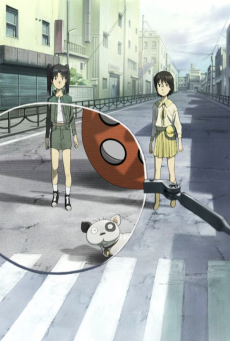 ANIME AdventureDennou Coil
ANIME AdventureDennou Coil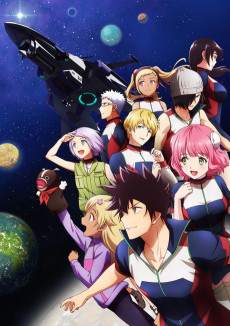 ANIME AdventureKanata no Astra
ANIME AdventureKanata no Astra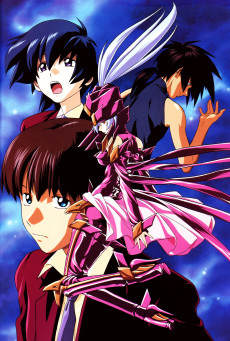 ANIME DramaMugen no Ryvius
ANIME DramaMugen no Ryvius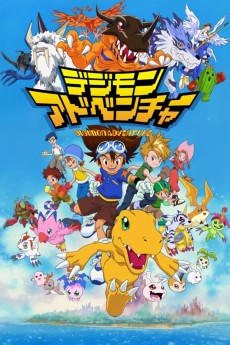 ANIME ActionDigimon Adventure
ANIME ActionDigimon Adventure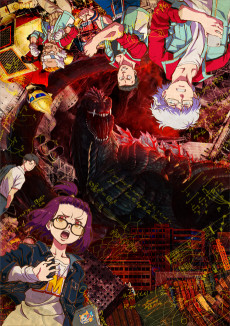 ONA ActionGodzilla: Singular Point
ONA ActionGodzilla: Singular Point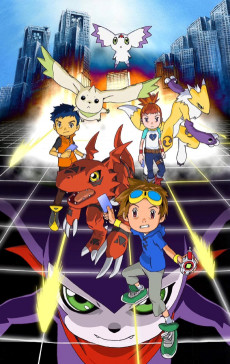 ANIME ActionDigimon Tamers
ANIME ActionDigimon Tamers MOVIE Action11-nin Iru!
MOVIE Action11-nin Iru!
SCORE
- (3.4/5)
TRAILER
MORE INFO
Ended inJanuary 28, 2022
Main Studio Production +h
Favorited by 163 Users
Hashtag #地球外少年少女


